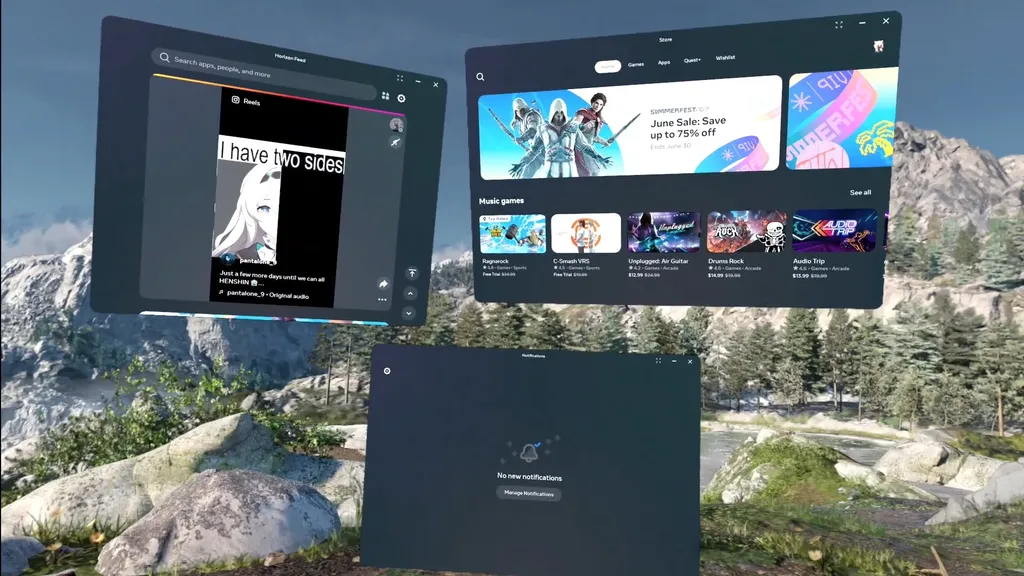Quest v67 will finally let you freely position 2D windows, the Public Test Channel build reveals.
What Is the Public Test Channel (PTC)?
The Public Test Channel (PTC) is Meta Quest's beta release channel. If you opt in, your headset receives a pre-release build of each Quest system software, now technically called Horizon OS, version.
Note that there are often features in the eventual stable version not present in the PTC, and occasionally (but very rarely) features or changes in the PTC don't make it to the stable version.
Currently the Quest system interface supports up to three visible windows at once and has separate 'modes' you switch between, Close View and Far View.
In Close View windows can't be resized and the side windows are attached to the middle app and not angled towards you, meaning viewability is awkward unless you physically strafe to the side. In Far View windows can be resized, but not individually repositioned.
In Close View you can only reposition the entire interface, including the attached windows, while in Far View you can reposition all the windows together separately from the interface, but you still can't individually reposition windows without moving the whole interface.
Footage from reddit user pullRequest18.
Version 67 PTC adds a new experimental option called New Window Layout.
New Window Layout gets rid of the explicit modes and instead lets you grab and detach windows to position and resize them freely. For the attached side windows, it also angles them slightly towards you to significantly improve viewability.
You can detach up to three windows, meaning you can now have a total of six 2D windows running at once, three docked and three detached.
New Window Layout also adds the new ability to take any window fullscreen, which makes it much larger and temporarily hides the dock and other windows. In the dock's place is a simplified control bar that lets you toggle curving, toggle between passthrough and virtual environment as the background, and adjust the brightness of said background.
Footage from VR enthusiast Luna.
Quest's New Window Layout system will draw many comparisons to Apple Vision Pro's visionOS, and even accusations of Meta copying visionOS or at least being inspired by it.
In a February ask-me-anything session on Instagram however, Meta's CTO Andrew Bosworth pushed back on this way of thinking, pointing out that Meta works on features like this for many months or even years in advance of releasing them.
While valid, this of course doesn't preclude the possibility of Vision Pro's launch leading Meta to prioritize completing certain features over others.



























